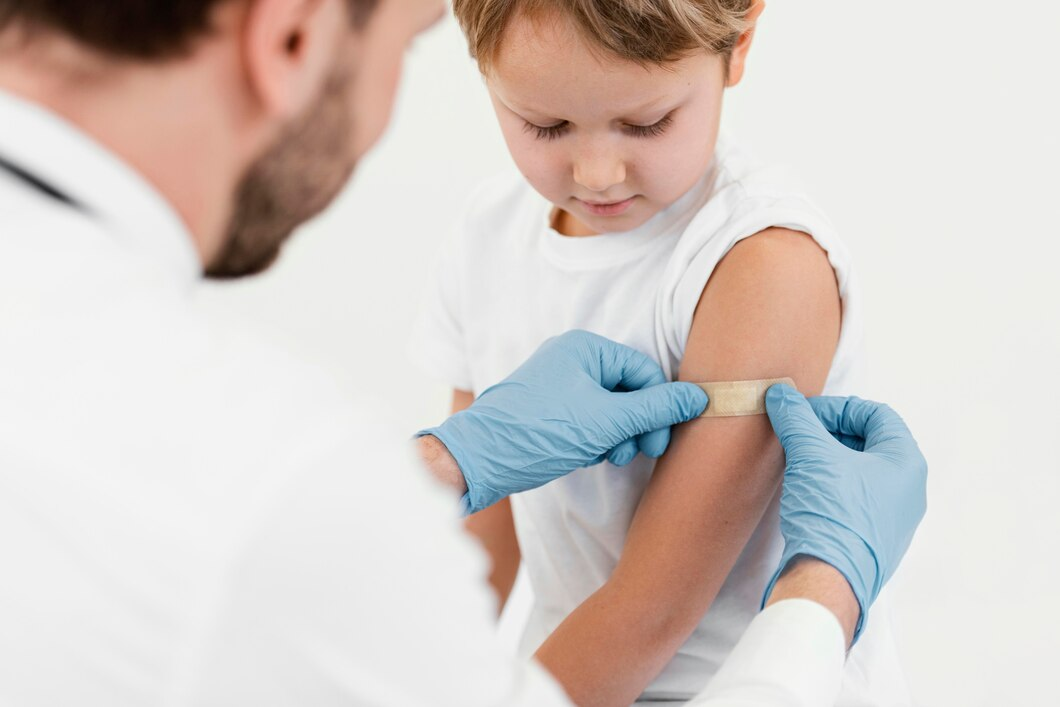The Importance of Vaccination
Why Vaccinations Matter
Vaccinations are a crucial part of preventive health care for children. They protect against various infectious diseases that can cause serious health problems. Immunizations not only safeguard individual children but also help maintain public health by preventing outbreaks.
Recommended Vaccination Schedule
The Centers for Disease Control and Prevention (CDC) provides a recommended vaccination schedule for children in the United States. Here is a brief overview:
-
Birth: Hepatitis B (HepB)
-
2 Months: DTaP (Diphtheria, Tetanus, Pertussis), Hib (Haemophilus influenzae type b), IPV (Polio), PCV13 (Pneumococcal), RV (Rotavirus)
-
4 Months: DTaP, Hib, IPV, PCV13, RV
-
6 Months: DTaP, Hib, IPV, PCV13, RV, HepB
-
12-15 Months: MMR (Measles, Mumps, Rubella), Varicella (Chickenpox), HepA (Hepatitis A), PCV13, Hib
-
18 Months: HepA
-
4-6 Years: DTaP, IPV, MMR, Varicella
Keeping Up with Immunizations
It’s vital to follow the recommended schedule and keep track of your child’s vaccinations. Regular visits to the pediatrician ensure that children receive their shots on time and remain up-to-date with their immunizations.
Common Pediatric Conditions
Respiratory Infections
-
Common Cold: Caused by various viruses, colds are frequent in children, leading to symptoms like a runny nose, cough, and sore throat.
-
Influenza: The flu is more severe than a cold and can lead to high fever, body aches, and fatigue. Annual flu vaccines are recommended for children over 6 months.
Gastrointestinal Issues
-
Gastroenteritis: Often referred to as stomach flu, this condition involves inflammation of the stomach and intestines, causing vomiting, diarrhea, and abdominal pain.
-
Constipation: Common in children, constipation can be alleviated through dietary changes and adequate hydration.
Skin Conditions
-
Eczema: A chronic condition causing red, itchy, and inflamed skin. Managing eczema involves moisturizing and avoiding triggers.
-
Impetigo: A bacterial infection that causes red sores on the face, particularly around a child’s nose and mouth. It requires antibiotic treatment.
Allergies and Asthma
-
Allergies: Common allergens include pollen, dust, and certain foods. Symptoms range from mild (sneezing, itching) to severe (anaphylaxis).
-
Asthma: A chronic respiratory condition characterized by wheezing, shortness of breath, and coughing. Managing asthma involves avoiding triggers and using prescribed inhalers.
Child Care Essentials from Auvon Health
At Auvon Health, we understand the importance of keeping children healthy and safe. Our range of health monitoring and management products can support parents in tracking and managing their child’s well-being effectively. From digital thermometers to portable nebulizers, our products are designed to provide accurate and reliable health data.




